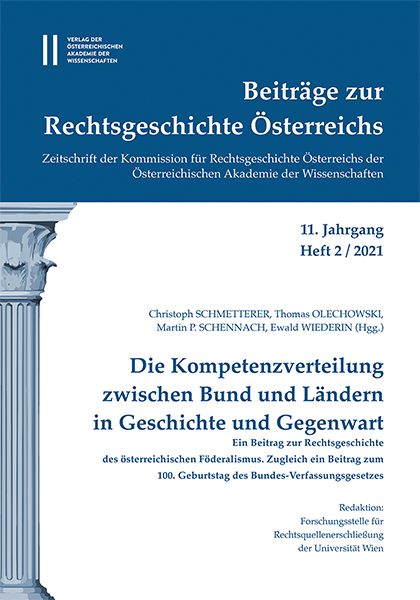
Beiträge zur Rechtsgeschichte Österreichs 11. Jahrgang Heft 2/2021, pp. 212-224, 2021/12/16
Die Kompetenzverteilung zwischen Bund und Ländern in Geschichte und Gegenwart
Ein Beitrag zur Rechtsgeschichte des österreichischen Föderalismus. Zugleich ein Beitrag zum 100. Geburtstag
des Bundes‐Verfassungsgesetzes
Until 1918, the distribution of competences in the Western part of the Habsburg Empire (Cisleithania, Austria) was based on constitutional acts from 1861 and 1867. The distribution of competences in the ‘February patent’ of 1861 was clear‐cut (at least in theory), but there was no procedure to change it. Nevertheless, it was changed when the December Constitution was enacted in 1867. In practice, there were two – closely linked – problems with the distribution of competences. On the one hand, it was not always clear whether the central parliament (‘Reichsrat’) or the diets (‘Landtage’) were competent. On the other hand, there was no instance to decide such questions of uncertain competences. Georg Jellinek and Hans Kelsen published detailed studies on these problems. Jellinek suggested establishing a constitutional court to decide uncertain competences. Kelsen analyzed the situation in greater detail than any other author, but made no suggestions as to how to solve the problems. His analysis was, however, important for the development of his pure theory of law and for his work on the federal constitution of 1920.
Keywords: distribution of competences – Cisleithania – December Constitution – February Patent – Georg Jellinek – Hans Kelsen